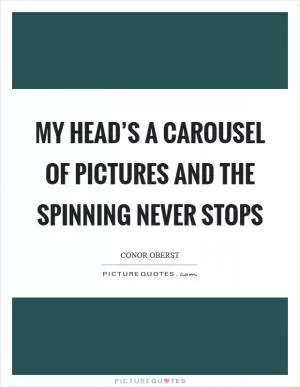If I die tonight, then I guess I die tonight Let me go on

If I die tonight, then I guess I die tonight Let me go on
Conor Oberst, the talented singer-songwriter known for his introspective and emotionally raw lyrics, has often explored themes of mortality and existentialism in his music. One of his most poignant and haunting lines comes from the song "Lua" off his album "I'm Wide Awake, It's Morning": "If I die tonight, then I guess I die tonight Let me go on."These words encapsulate the sense of resignation and acceptance that permeates much of Oberst's work. In the face of life's uncertainties and the inevitability of death, he seems to be saying that there is a certain freedom in letting go and embracing whatever may come. It's a sentiment that is both bleak and strangely liberating, reflecting Oberst's complex and often contradictory worldview.
Throughout his career, Oberst has grappled with his own mortality and the fleeting nature of existence. His lyrics are filled with references to death, loss, and the passage of time, as he navigates the complexities of love, pain, and the human experience. In songs like "Poison Oak" and "Lime Tree," he delves into the darker aspects of life, confronting his own fears and insecurities with unflinching honesty.
But despite the darkness that often pervades his music, there is also a sense of resilience and hope that shines through. In "If I die tonight, then I guess I die tonight Let me go on," there is a quiet determination to keep moving forward, to keep living in the face of uncertainty and despair. It's a reminder that even in the darkest moments, there is still beauty and meaning to be found.
Conor Oberst's music has a way of speaking to the deepest parts of the human experience, touching on universal themes of love, loss, and the search for meaning. His lyrics are like poetry, capturing the complexities of life in all its messy, heartbreaking glory. And in the face of mortality, he offers a message of acceptance and resilience, urging us to keep going, no matter what may come.












 Friendship Quotes
Friendship Quotes Love Quotes
Love Quotes Life Quotes
Life Quotes Funny Quotes
Funny Quotes Motivational Quotes
Motivational Quotes Inspirational Quotes
Inspirational Quotes